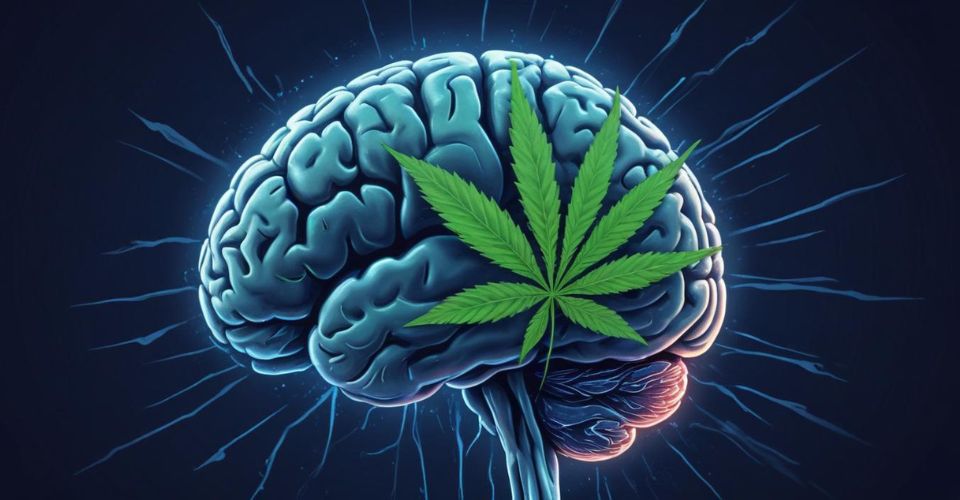In a recent study published in the journal Psychotherapy, researchers have shed light on the effectiveness of Intensive Short-Term Psychodynamic Psychotherapy (ISTDP) in treating treatment-resistant depression (TRD).
The findings of this study offer hope to individuals who have not found relief from depressive symptoms through traditional antidepressant treatments.
This randomized controlled trial (RCT) demonstrated that ISTDP, a confrontational and emotion-focused model of psychodynamic psychotherapy, led to positive results, particularly in patients for whom conventional antidepressants had proven ineffective.
The trial showed that ISTDP was associated with a significant reduction in negative affect and emotional repression, both of which are closely linked to depression. Moreover, the benefits of this treatment persisted even three months after the conclusion of the trial.
The authors of the study noted, “The findings show that ISTDP for TRD’s effect is not limited to depressive symptoms, but that negative affect is more broadly reduced. ISTDP can decrease emotional repression, which is consistent with its presumed working mechanisms.”
“Together, this indicates that ISTDP might be a promising treatment for TRD, a prevalent disorder associated with significant personal and societal costs, for which other psychotherapies have failed to be shown efficacious relative to treatment-as-usual.”
The research was conducted by Rasoul Heshmati from the University of Tabriz, in collaboration with Frederik J. Wienicke and Ellen Driessen from Radboud University’s Behavioural Science Institute.
The Effectiveness of Psychodynamic Psychotherapy
Psychodynamic psychotherapy has been increasingly recognized for its significant effectiveness in addressing various psychological distress and psychiatric disorders.
This approach, in contrast to biomedical models of treatment, has shown its merit in reducing symptoms of depression, bipolar disorder, anxiety, panic disorders, post-traumatic stress, psychosomatic problems, and personality disorders.
ISTDP, a specific model within psychodynamic psychotherapy, stands out due to its confrontational nature and emphasis on emotions rather than symptoms. Therapeutic interventions in ISTDP aim to promote the experiencing and processing of unconscious emotions to alleviate distress and induce behavioral change.
While previous research had indicated the effectiveness of ISTDP, particularly in addressing “treatment-resistant” depression, limited research had explored its impact on reducing negative affect and emotional repression, both of which are essential theoretical mechanisms of change.
The Research Methodology
To test their theoretical assumptions, the researchers conducted a randomized control trial involving patients who had not experienced a reduction in depressive symptoms following psychopharmacological treatment.
Participants, aged between 18 and 60 years, with at least a high school education, met the criteria for Major Depressive Disorder as per the Diagnostic and Statistical Manual of Mental Disorders (DSM), assessed using the Mini-International Neuropsychiatric Interview-Plus.
Participants were required to meet the criteria for treatment-resistant depression, signifying that they did not respond positively to at least one open trial of antidepressants. A total of 86 participants were selected, with 43 assigned to the experimental group, which received ISTDP treatment, and 43 to the control group, which did not receive treatment.
Two experienced psychotherapists specializing in ISTDP delivered 20 individual sessions to each participant, twice a week over ten weeks. Sociodemographic information, including age, gender, marital status, education level, employment status, and socioeconomic status, was collected by the researchers.
The participants’ depressive symptoms, negative affect, and repressed emotion were assessed using the Weinberger Adjustment Inventory (WAI) and Positive and Negative Affect Schedule (PANAS) at baseline, post-treatment, and three months after treatment.
Key Findings
Initially, there were no significant differences between the control and experimental groups. However, participants who underwent ISTDP treatment exhibited significantly lower levels of depressive symptoms, emotional repression, and negative affect compared to the control group.
The effect size of the treatment was large in all areas, immediately after treatment and three months post-treatment, compared to the initial baseline. Furthermore, the effect size was significant when comparing changes in depression and emotional repression between the post-treatment and the three-month follow-up.
Regarding negative emotions, the effect size was large both immediately after the treatment and three months afterward, with a medium effect size between these two time points.
These findings highlight the enduring positive impact of ISTDP on participants even after the treatment has concluded.
Implications and Challenges of ISTDP for Treatment-Resistant Depression
These results further underscore the effectiveness of psychodynamic psychotherapy, emphasizing the importance of treatment models that go beyond symptom-focused approaches. Many of these models have proven ineffective in addressing so-called “treatment-resistant depression.”
Psychodynamic psychotherapy, particularly ISTDP, offers a deep therapeutic connection between participants and therapists, aiming to address the root causes of distress. This study underscores the potential for individuals to experience relief from their suffering and find a sense of well-being, even when traditional psychiatric treatments have proven ineffective.
In conclusion, the study demonstrates that ISTDP holds promise as an effective treatment for individuals with treatment-resistant depression, offering new hope for those struggling with this prevalent and challenging condition.





















